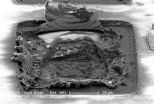(Press-News.org) In 2010, it was shown that melons and cucumbers can be traced back to India. Because of the importance of the region for an understanding of Cucurbitaceae evolution and diversity, a new checklist of the Cucurbitaceae of India was produced to update the information on that family. The study was published in the open access journal PhytoKeys.
Vegetables are essential components of a healthy daily diet, not just in India but around the globe. Compared to grains and pulses, however, vegetables are under-investigated taxonomically, and information on their genome is scarce. The cucumber family, Cucurbitaceae, includes many of our favorite foods: pumpkins, melon, cucumber, watermelon, bottle gourds, and bitter gourd. Molecular data have recently revealed that both cucumber (Cucumis sativus L.) and melon (Cucumis melo L.) are indigenous to India and likely to have originated from the foothills of the Himalayas.
Arun Pandey from the Department of Botany, University of Delhi, India and Susanne Renner from the Departments of Systematic Botany and Mycology, University of Munich, Germany decided to produce a checklist of the Cucurbitaceae of India that would bring up-to-date the information available for that family. The list treats 400 relevant names and provides information on the collecting locations for all type specimens. The list includes 94 species (10 of them endemic to India) from 31 genera.
For each species, the checklist provides distributional information, electronic links to images of living or dried plants, and information on publicly available DNA sequences. Of the 94 species, 79% have DNA sequences in GenBank, albeit rarely stemming from Indian material. The most species-rich genera are Trichosanthes with 22 species, Cucumis with 11 (all but two wild), and the bitter gourd genus, Momordica, with eight. The checklist also includes a phylogenetic reconstruction of the family that shows the DNA-based placement of the 31 Indian genera relative to the World's remaining Cucurbitaceae.
Dr. Susanne Renner, one of the authors of the article, comments: "Updating and summarising the available information on Indian Cucurbitaceae and linking it to molecular data and images may help to focus phylogenetic and floristic research on poorly known species, and potentially strengthen conservation efforts. It may also provide vital genetic information to improve the current varieties of pumpkins, cucumbers, and their relatives."
INFORMATION:
Original Source:
Renner SS, Pandey AK (2012) The Cucurbitaceae of India: Accepted names, synonyms, geographic distribution, and information on images and DNA sequences. PhytoKeys 20: 53, doi: 10.3897/phytokeys.20.3948
Licensing
This press release is available under the Creative Commons Attribution 3.0 License. It is expected to link back to the original article.
Posted by Pensoft Publishers.
New checklist brings information about Cucurbitaceae up to date
2013-03-12
ELSE PRESS RELEASES FROM THIS DATE:
Changes needed to improve in-hospital cardiac arrest care, survival
2013-03-12
Policy and practice changes by healthcare institutions, providers and others could greatly improve medical care and improve survival for people who have a sudden cardiac arrest in the hospital, according to an American Heart Association consensus statement in its journal, Circulation.
Each year, more than 200,000 adults and 6,000 children have in-hospital cardiac arrests, and survival has remained essentially unchanged for decades, statement authors said. According to the American Heart Association, only 24.2 percent of in-hospital cardiac arrest patients survive to hospital ...
Regenstrief and IU study investigates older adults' views on cancer screening
2013-03-12
INDIANAPOLIS -- A study from the Regenstrief Institute and the Indiana University Center for Aging Research has found that many older adults are hesitant to halt cancer screenings even when the screenings may no longer be beneficial or may even be potentially harmful. The study is among the first to explore older adults' perceptions of recommendations to halt screenings for breast, prostate, colon and other cancers as they age.
"Older Adults and Forgoing Cancer Screening: 'I think it would be strange'" was published Online First by JAMA Internal Medicine. "I think it ...
Analysis of ASCO's QOPI® data finds significant improvement in performance on metrics for quality oncology care
2013-03-12
In this News Digest:
Summary of a study being published online March 11, 2013, in the Journal of Clinical Oncology, analyzing self-reported data from 156 outpatient oncology practices participating in the American Society of Clinical Oncology's Quality Oncology Practice Initiative (QOPI®) showing significant improvements in performance on certain measures for quality oncology cancer care over a four-year period.
Overall, mean normalized performance scores from participating practices rose from 71 to 85 percent between 2006 and 2010; improvements were especially profound ...
Monsoon failure key to long droughts in Southwest
2013-03-12
Long-term droughts in the Southwestern North America often mean failure of both summer and winter rains, according to new tree-ring research from a University of Arizona-led team.
The finding contradicts the commonly held belief that a dry winter rainy season is generally followed by a wet monsoon season, and vice versa.
The new research shows that for the severe, multi-decadal droughts that occurred from 1539 to 2008, generally both winter and summer rains were sparse year after year.
"One of the big questions in drought studies is what prompts droughts to go ...
Lunar impacts created seas of molten rock, research shows
2013-03-12
PROVIDENCE, R.I. [Brown University] — Early in the Moon's history an ocean of molten rock covered its entire surface. As that lunar magma ocean cooled over millions of years, it differentiated to form the Moon's crust and mantle. But according to a new analysis by planetary scientists from Brown University, this wasn't the last time the Moon's surface was melted on a massive scale.
The research, led by graduate student William Vaughan, shows that the impact event that formed the Orientale basin on the Moon's western edge and far side produced a sea of melted rock 220 ...
Remote clouds responsible for climate models' glitch in tropical rainfall
2013-03-12
It seems counterintuitive that clouds over the Southern Ocean, which circles Antarctica, would cause rain in Zambia or the tropical island of Java. But new research finds that one of the most persistent biases in global climate models – a phantom band of rainfall just south of the equator that does not occur in reality – is caused by poor simulation of the cloud cover thousands of miles farther to the south.
University of Washington atmospheric scientists hope their results help explain why global climate models mistakenly duplicate the inter-tropical convergence zone, ...
Long-suspected cause of blindness from eye disease disproved
2013-03-12
(SALT LAKE CITY)—Vision scientists long have thought that lack of very long chain fatty acids in photoreceptor cells caused blindness in children with Stargardt type 3 retinal degeneration, an incurable eye disease. But researchers at the University of Utah's John A. Moran Eye Center have shown in a new study that lack of these fatty acids does not cause blindness, meaning that the search for the mechanism that robs sight from children with the disease must start anew.
Researchers led by David Krizaj, Ph.D., associate professor of ophthalmology and visual sciences at ...
Common erectile dysfunction drug not helpful for heart failure patients, study finds
2013-03-12
SAN FRANCISCO -- A commonly used erectile dysfunction drug, sildenafil, doesn't help patients who have heart failure with preserved ejection fraction, a condition in which the heart's lower chambers are stiff and cannot relax and fill fully between beats. That is the finding of the RELAX study, presented today at the American College of Cardiology's 62nd Annual Scientific Session and simultaneously published in The Journal of the American Medical Association. The study's lead author called the results disappointing.
Sildenafil, a phosphodiesterase-5 inhibitor, had shown ...
Astronomers conduct first remote reconnaissance of another solar system
2013-03-12
Researchers have conducted a remote reconnaissance of a distant solar system with a new telescope imaging system that sifts through the blinding light of stars. Using a suite of high-tech instrumentation and software called Project 1640, the scientists collected the first chemical fingerprints, or spectra, of this system's four red exoplanets, which orbit a star 128 light years away from Earth. A detailed description of the planets—showing how drastically different they are from the known worlds in the universe—was accepted Friday for publication in The Astrophysical Journal. ...
Creating indestructible self-healing circuits
2013-03-12
PASADENA, Calif.—Imagine that the chips in your smart phone or computer could repair and defend themselves on the fly, recovering in microseconds from problems ranging from less-than-ideal battery power to total transistor failure. It might sound like the stuff of science fiction, but a team of engineers at the California Institute of Technology (Caltech), for the first time ever, has developed just such self-healing integrated chips.
The team, made up of members of the High-Speed Integrated Circuits laboratory in Caltech's Division of Engineering and Applied Science, ...





